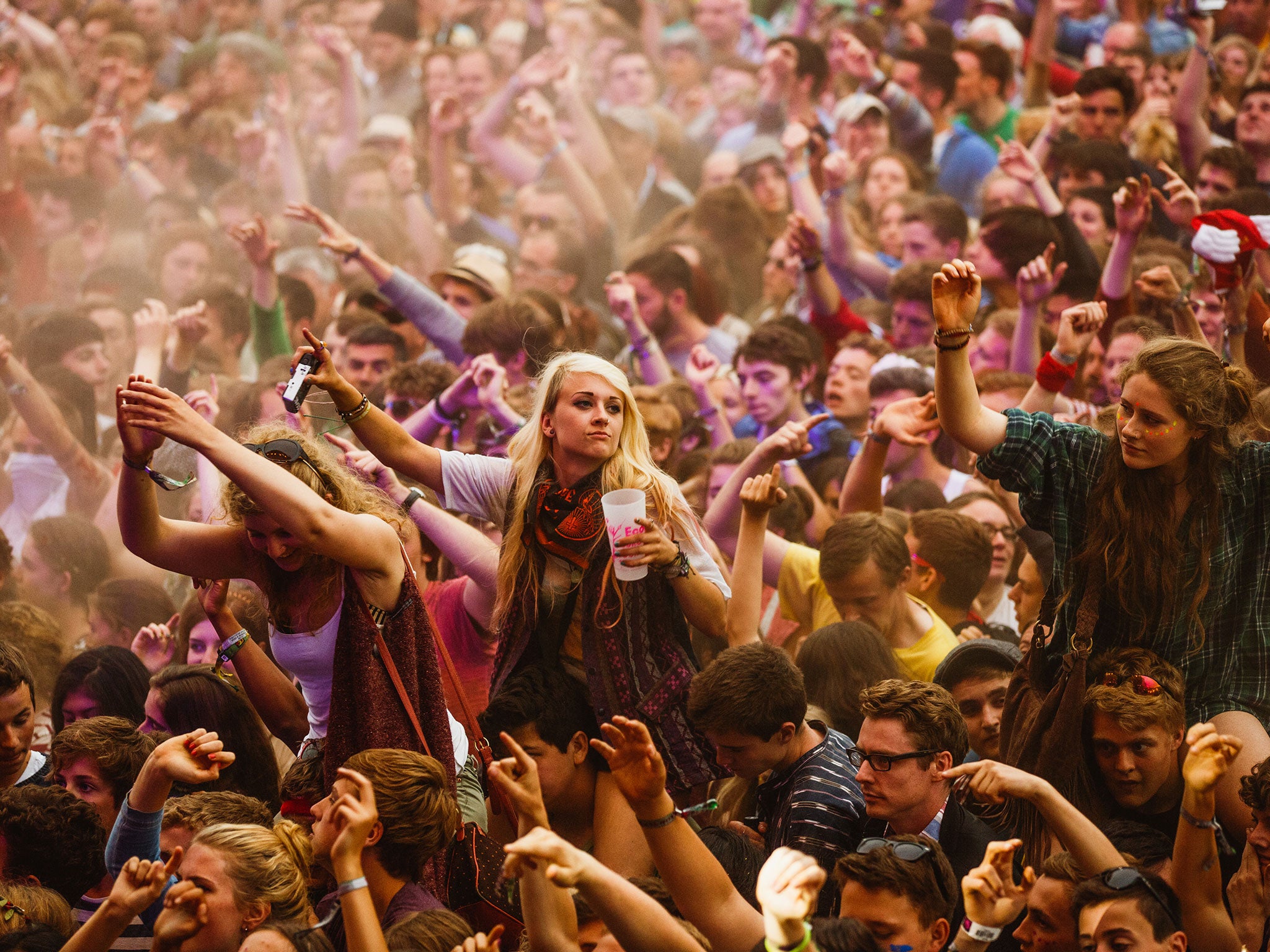Only one female headliner: New study reveals gender imbalance at British summer music festivals
All-male bands made up 43 per cent of this summer's acts, while all-female bands made up just 3.5

Men far outnumber women when it comes to performing at UK music festivals, a new study has found.
In the study carried out by the newspaper The Telegraph, it found that there was a massive gender imbalance in the number of women performing and headlining at Britain’s top six festivals when compared to men.
According to the findings, Lily Allen, a last minute replacement for Two Door Cinema club at Latitude, was the only solo female artist to star in a top slot at a major festival this year, with Paramore and Arcade Fire the only other headlining acts to feature women.
This lack of female headliners followed a pattern throughout Britain’s biggest festivals that saw men far outnumber women when it came to representation on festival stages.
From the analysis taken from Isle of Wight, Glastonbury, Latitude, Reading and Leeds Festivals, V Festival and Bestival, female bands made up only 3.5 per cent of all festival acts, nearly 40 per cent lower than the proportion of bands that were made up exclusively of males.
Latitude Festival in pictures
Show all 37Solo female acts did a bit better making up 16 per cent of the 650 acts performing this summer; however, this was still far lower than male solo artists who made up 24 per cent of all acts to perform.
The findings come despite a number of female artists being lauded for their performances during the 2014 festival season.
Both Kelis and Lilly Allen received rave reviews after their performances at Latitude, while at Glastonbury, 68-year-old Dolly Parton’s two-hour-set went down in the annals of legendary performances.
At each of the six festivals selected, all-male bands were far and away the best represented, usually outnumbering female acts two-to-one, and in some cases even more.
Reading and Leeds festivals had the smallest number of women performing, with less than five per cent of their acts being solo female artists and only one band being all-female.
Enjoy unlimited access to 70 million ad-free songs and podcasts with Amazon Music
Sign up now for a 30-day free trial
Enjoy unlimited access to 70 million ad-free songs and podcasts with Amazon Music
Sign up now for a 30-day free trial
In reaction to the findings, festival organisers and bookers have acknowledged the imbalance, saying that more needed to be done to address the issue.
Jon Mac, booker for Reading and Leeds festivals told The Telegraph: “If you look at aspiring musicians in the past, particularly in the rock, indie and dance worlds, there were more boys than girls trying to make a go of it and therefore more breaking through. Things need to and I believe are changing. Often the most interesting artists at Reading and Leeds are female.”
Bestival organiser Rob Da Bank supported this by saying that the findings were “pretty terrifying”.
He did say, however, that 2014 was a bad year when compared to previous years and that these things usually work in cycles.
He told The Telegraph: “Sometimes we have bumper years: when PJ Harvey headlined Camp Bestival we had five or six really great female acts on the bill.”
Natasha Haddad, who was in charge of Latitude’s line-up, said that it wasn’t all bad and that there were a number of exciting new female artists and bands coming through.
She said: ”In terms of bringing on new female, credible pop artists, such as Lorde, Emile Sande and Jessie Ware, we're very much on track. The future holds a lot of promise.“
But did acknowledge that a lot more needed to be done to “mindfully represent women”.
Subscribe to Independent Premium to bookmark this article
Want to bookmark your favourite articles and stories to read or reference later? Start your Independent Premium subscription today.

Join our commenting forum
Join thought-provoking conversations, follow other Independent readers and see their replies